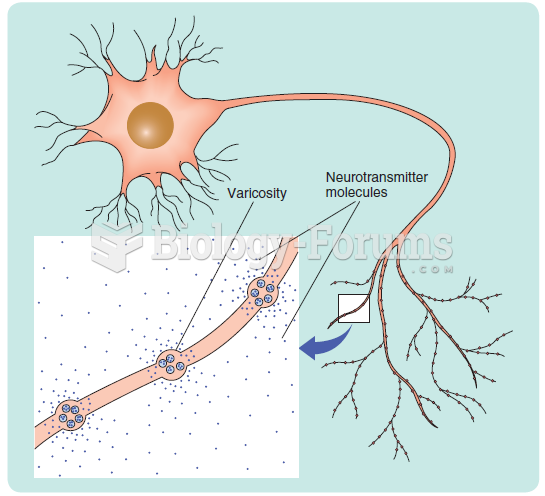|
|
|
A recent study has found that following a diet rich in berries may slow down the aging process of the brain. This diet apparently helps to keep dopamine levels much higher than are seen in normal individuals who do not eat berries as a regular part of their diet as they enter their later years.
Your skin wrinkles if you stay in the bathtub a long time because the outermost layer of skin (which consists of dead keratin) swells when it absorbs water. It is tightly attached to the skin below it, so it compensates for the increased area by wrinkling. This happens to the hands and feet because they have the thickest layer of dead keratin cells.
Blood in the urine can be a sign of a kidney stone, glomerulonephritis, or other kidney problems.
Nearly all drugs pass into human breast milk. How often a drug is taken influences the amount of drug that will pass into the milk. Medications taken 30 to 60 minutes before breastfeeding are likely to be at peak blood levels when the baby is nursing.
Cutaneous mucormycosis is a rare fungal infection that has been fatal in at least 29% of cases, and in as many as 83% of cases, depending on the patient's health prior to infection. It has occurred often after natural disasters such as tornados, and early treatment is essential.
 Antiparkinson Drugs Focus on Restoring Dopamine Function and Blocking Cholinergic Activity in the Ni
Antiparkinson Drugs Focus on Restoring Dopamine Function and Blocking Cholinergic Activity in the Ni
 Small nuclear RNAs (snRNA), 100-200 bp in length, form part of the splicing mechanisms to process mR
Small nuclear RNAs (snRNA), 100-200 bp in length, form part of the splicing mechanisms to process mR





